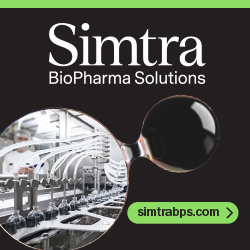Entera Bio Reports Positive Results from Part 1 of a Phase 2 PK/PD Study
Entera Bio Ltd. recently announced it has received positive results from the first part of its pharmacokinetic (PK) and pharmacodynamic (PD) study in patients with hypoparathyroidism treated with its oral parathyroid hormone (PTH) drug [Oral PTH (1-34)].
“The results from Part 1 of the PK/PD study in patients with hypoparathyroidism have confirmed that Oral PTH (1-34) activates biological pathways that PTH is known to regulate. This study builds on and supports our previous PK results in more than 100 subjects and confirms that Oral PTH (1-34) is effectively delivered into the blood stream,” said Dr. Phillip Schwartz, Chief Executive Officer of Entera Bio. “In addition to positively impacting the levels of serum calcium, phosphate, and active vitamin D (1,25-dihydroxy vitamin D), we also observed a significant decrease in 24-hour urinary calcium levels in hypoparathyroid patients treated for one day with Oral PTH (1-34). These results further support our belief that the administration of Oral PTH (1-34) multiple times per day may improve hypercalciuria in hypoparathyroid patients.”
“Oral PTH (1-34) may offer significant advantages in hypoparathyroid patients to better manage their chronic disease, from both a compliance and efficacy perspective. In Part 2 of this Phase 2 study, we look forward to collecting additional data on the treatment of hypoparathyroid patients, which will help support the advancement of Oral PTH (1-34) into a Phase 2b/3 study in which the clinical relevance of Oral PTH (1-34) would be evaluated,” concluded Dr. Schwartz.
Dr. Arthur Santora, Chief Medical Officer of Entera Bio, added “The bioavailability and PK profile of a single morning dose of Oral PTH (1-34) also support its further development as a treatment for osteoporosis. We are planning to meet with the FDA in the coming weeks to discuss the clinical development strategy, including an anticipated Phase 2 study in 2019 and setting a path toward a Phase 3 study for Oral PTH (1-34) in the treatment of osteoporosis.”
Part 1 of this Phase 2 trial in patients with hypoparathyroidism was designed to evaluate the PK and PD profiles of Oral PTH (1-34) and injectable PTH (1-84), Natpara.
In this partial crossover study, 10 patients completed two 3-day in-patient visits. Throughout each of these three-day visits, patients remained on their current standard medications. On the first day of each visit (baseline) patients received no additional treatments. On day 2, patients were randomized to receive one of three treatments: Oral PTH (1-34) twice a day (BID), Oral PTH (1-34) four time a day (QID), or injectable PTH (1-84) (Natpara) once a day (QD). On day 3, patients did not receive any additional treatments. In the second 3-day visit, patients were again randomized on day two to receive one of the treatment regimens they had not received previously. Throughout the 3-day visits, patients were continuously monitored clinically. Blood samples were taken to measure PTH, calcium, phosphate, and active vitamin D (1,25-(OH)2). Twenty-four-hour urine samples were collected to measure urinary calcium.
PTH has several well-known physiological effects. It increases serum calcium, decreases serum phosphate and increases active vitamin D synthesis. Results from the PK/PD study of Oral PTH (1-34) QID treatment include:
-The serum calcium increase averaged approximately 0.3 mg/dL over baseline, and this increase was maintained over a 24-hour period
-Serum phosphate decreased an average of 0.5 mg/dL below baseline and this decrease was maintained over a 24-hour period
-Average levels of serum active vitamin D increased by approximately 90% on the day of treatment as compared to baseline
-Average levels of 24-hour urinary calcium decreased by approximately 30% on the day of treatment as compared to baseline.
An initial analysis of the Part 1 data suggests that the QID regimen provided a greater effect on all of the parameters measured as compared to the BID regimen. The concentration of PTH (1-34) in blood after administration of Oral PTH (1-34) in the current study was sufficient to produce the observed pharmacodynamic effects and did not induce hypercalcemia. No serious adverse events were reported in the study.
The second and final part of this PK/PD study will evaluate a three times per day (TID) treatment regimen with a high and low dose of Oral PTH (1-34), as well as Natpara. The results from the completed Phase 2 PK/PD trial will provide input for the design of our anticipated pivotal clinical trials. Details of the complete data set of this PK/PD study will be presented at scientific meetings and in publications in 2019.
Hypoparathyroidism is a rare condition in which the body produces insufficient amounts of PTH. Individuals with a deficiency of PTH typically exhibit abnormally low levels of calcium in the blood, or hypocalcemia, and high levels of phosphate in the blood, or hyperphosphatemia. Hypoparathyroidism is estimated to affect approximately 58,000 individuals in the United States. Historically, the treatments for hypoparathyroidism have been calcium supplements, vitamin D supplements and phosphate binders, the chronic use of which may result in serious side effects which can result in significant costs to the healthcare system. Natpara, a once-daily injectable form of PTH, has been approved by the FDA and EMA for the treatment of hypocalcemia in patients with hypoparathyroidism.
Entera Bio is a clinical-stage biopharmaceutical company focused on the development and commercialization of orally delivered large molecule therapeutics for use in orphan indications and other areas with significant unmet medical needs. The company is initially applying its technology to develop an oral formulation of parathyroid hormone, Oral PTH (1-34), for treatment of hypoparathyroidism and osteoporosis.
Total Page Views: 1517

















